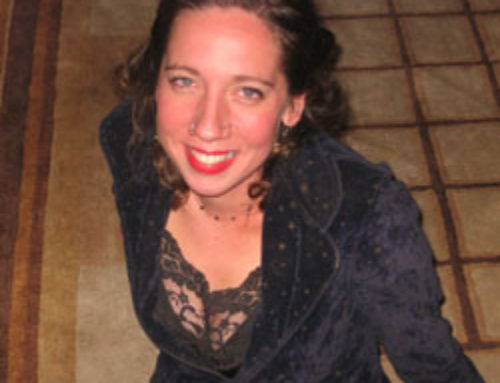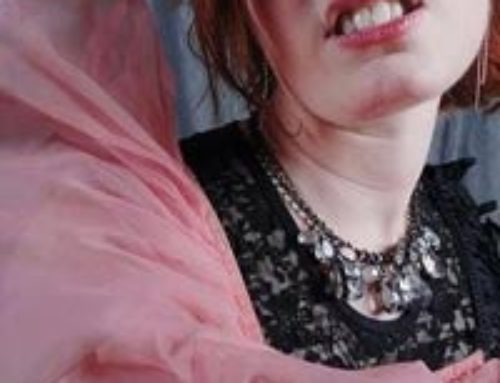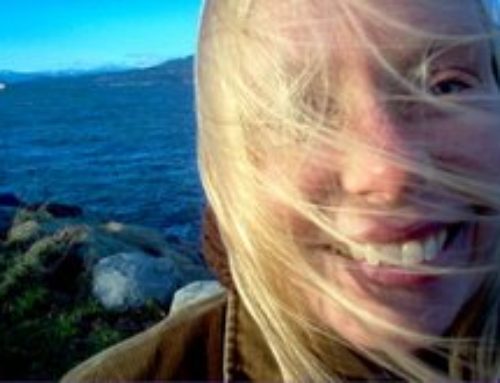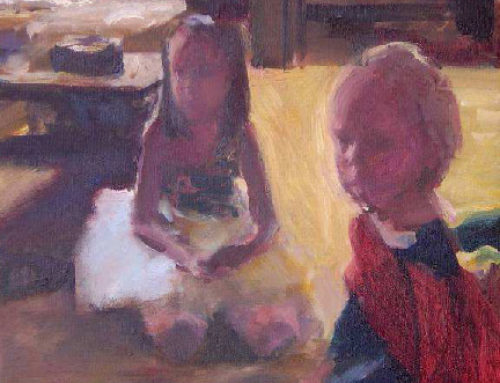from The Immigrant’s Refrigerator
HUMMUS
Who would have believed that ground chickpeas with garlic, olive oil, and lemon juice, formed into a paste, would be welcomed by the British public, and end up on a shelf at Safeway? She certainly wouldn’t have. In fact, she was so unaccustomed to seeing this product outside of her parents’ home, she didn’t immediately register it in the dips section of the supermarket in Stamford Hill.
What was she doing in Stamford Hill, anyway? Here she felt even more invisible than when she was with her family. Here she also felt alone. The flat she’d just moved into with her fiancé was going to be her new home. She tried to make this home feel like hers by bringing along her piano. She’d also seized onto a British matrimonial custom—the piano was supposed to be the “something old” of the upcoming marriage. The “something new” was the home. So, she arranged to have the Upright lugged out of her parents’ home and up the narrow corridors of the subsidized housing where she was now the joint inhabitant of a rented flat. The “something borrowed” and “something blue” were still up in the air.
The marriage was less six months away, so she squeezed in the planning every night, just before she practiced Chopin for half an hour before bed. In the morning, half an hour after rising, she practiced Mozart. Her fiancé would leave for work fifteen minutes into a piano sonata and return home for dinner—a Lancashire Hotpot or a Shish Kebab or anything homemade—promptly at six. But as their nights together accrued, he returned home later and later, until one night he didn’t return until fifteen minutes into Chopin. As the months leading to the wedding diminished, he spent larger parts of his waking time practicing his own invisibility. About a month before the wedding, he’d perfected it, and one night in particular he was completely unseen.
When she woke the next morning, she was not sure if he had returned home to sleep. She decided to test the space to see if he was present. She was certain his invisibility would not have taken away his response to music. She walked out of the bedroom and into the livingroom, sat at the piano, and began playing “The Raindrop Etude.” He hated the tranquil, dreamy sound of Chopin in the morning. If he was home, he’d come roaring out of the bedroom to scold her for waking him. Then he would call her a bitch.
But nobody stirred. And when she stopped playing, all she heard was a series of three slaps of skin against skin coming from the flat next door. In the last month, the husband’s slaps and tirades had become more frequent—at least once a day—and the wife’s concentrated sobs were now more like diluted whimpers. She closed the piano’s lid, walked to where the baseboard met the wall, and knelt. This was where the whimpers sounded closest. She rested the entire left side of her face against the sand-colored partition and also touched its surface with her hand. On her fingers she could smell garlic—the residue from last night’s hummus. She remained kneeling for twenty minutes, waiting for the neighbor’s crying to subside, but it didn’t.
When she got back up, her knees were shaky, but her mind was firm—she would not marry someone she could not see. So she packed as many belongings as could fit into one suitcase, and locked the door behind her. The neighbor’s whimpers faded as she dragged the stuffed suitcase down the stairs, but the aroma of dahl wafted behind her all the way to the exit. She did not leave a note to say the wedding was off. She was sure the absence of her clothes and her music sheets was enough. She would arrange for the piano to be picked up later.
*
She had always wanted the piano to be her instrument of joy, but it had never worked out that way. When she lived with her parents, she’d tried to practice, but every time she sat down to play—Mozart, Beethoven, Chopin, it didn’t matter which composer—the rest of the family asked if she could do it some other time; specifically, while they were out. This presented a problem. How could she practice if she was never home alone? Being home alone was not something she was allowed to be. How was it that no one else noticed this problem? She said nothing. Her father kept paying for the lessons. Her mother kept driving her to the teacher’s home. And every Saturday morning, she was told to polish the piano. And she did. And it stood there with its back against the wall, shiny and silent.
The teacher’s piano was a Grand and had a sign on it that said: Do not put anything on the piano. The sign made the piano look like the still and dangerous waters of Loch Ness. When she was not sitting at the keys, she made sure to stand a safe distance away. The sign confused her and instilled in her a feeling that was the opposite of calm. When she played the soothing melody of the “Moonlight Sonata” for her teacher, she imagined Nessie giving birth, and a baby Loch Ness Monster crawling out of the piano’s belly and plopping itself into her lap. Her teacher scolded: “It is a waste of my time and yours, if you do not spend a small part of each day practicing your instrument.” She tried to speak up—“But . . .”—but her mouth was full of chickpeas. Words formed at the back of her throat, made their way to her mouth, and then transformed into a paste that glued her lips shut. Even without this chickpea glue, speaking up was a difficult thing to do. She could not say to her family, “But I want to practice.” And she could not say to her teacher, “I’m trying.” And she could not say to her fiancé, “Don’t call me bitch.”
The teacher did not indulge her stutter. “No buts. No excuses,” she said, her foot pumping the pedal, her fingers dominating the keys. “If you do not practice, you will never have command of it. You will never make it do what you want it to do.” When her mother picked her up, she kept the teacher’s scolding to herself. She sat in the back of the car, silent, looking for more monsters in storefront windows, and when she couldn’t find any, she sat still as the world blurred past.
In 1972, she went to a new school. This was the time when English 11-year-olds were introduced to Algebra and The Irish Question. In Math there were unknowns that were represented by letters. In Religious Knowledge, there were unknowns represented by God. In Math, there were equations to be solved. In Religious Knowledge there was Jesus and Sinn Fein. In the back of the car, unknowns and equations and questions and struggles for independence all got muddled in her head. When she got home, she tried to solve the piano-practice problem by using equations with knowns and unknowns. In her Math book, she wrote:
If x = piano, a = fingers on keys, b = at home, c = never alone,
and if x + a + b + c = d, then what does d equal?
This bit of the equation was easy:
d = no opportunity to practice.
If d = no opportunity to practice, then what does d – y equal?
She spent the hour between the piano lesson and the black-eyed peas and spinach for dinner trying to calculate the correct answer. The first time, d – y equaled Jesus answering a prayer. The second time, d – y equaled the separation of piano + pianist from family. The third time, d – y equaled government intervention and her being placed in care (which, in effect, was the same as the previous answer). The fourth time, d – y equaled a struggle for independence. The fifth time, d – y equaled being swallowed up by the Loch Ness Monster and living happily inside Nessie’s stomach, like Jonah had done inside the whale. Once inside Nessie’s stomach, she would repeatedly practice the “Sonata Pathétique” until her whole body was filled with music.
*
A week after her departure from the Stamford Hill flat, she borrowed a car to return to pick up her recipe-books and LPs. Even though there was no one inside, there was already another woman’s clothes hanging where her clothes had once hung. And on the bed, there were clothes for a baby, folded neatly, all blue.
Something borrowed—a car.
Clothes for a new lover’s baby—something blue.
Ten thousand sewing needles plunged into her chest. She dropped to her knees and cried. On the other side of the beige wall, the neighbor-wife heard the pianist’s concentrated sobs. She squatted to where the sound was loudest. She pressed the right side of her face against the partition. She put her hand beside her cheek. As she listened, she could smell the residue of garlic on her fingers. She had soaked the chickpeas overnight. Boiled and seasoned them this morning.
The pianist stopped crying. Her body was empty except for the hummus inside.
* * * * * * * * *
Elena Georgiou is the author of Rhapsody of the Naked Immigrants (Harbor Mountain Press) and mercy mercy me (University of Wisconsin Press),which won a Lambda Literary Award for poetry, was a finalist for the Publishing Triangle Award. She is co-editor (with Michael Lassell) of the poetry anthology, The World In Us (St. Martin’s Press). Georgiou has won an Astraea Emerging Writers Award, a New York Foundation of the Arts Fellowship, and was a fellow at the Virginia Center for the Creative Arts. Her recent work appears in Denver Quarterly, BOMB, MiPoesias, Lumina, Spoon River Review, Cream City Review, and Gargoyle. She is a member of the faculty in the MFA program at Goddard College, Vermont.




